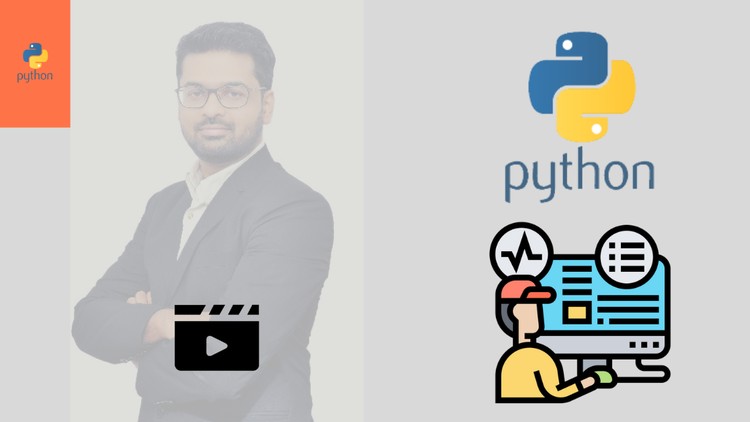Python Object Oriented Programming (OOPs) concept

Why take this course?
Python: Master Object-Oriented Programming (OOPs) with Confidence! 🚀
Dive into the world of Python and unlock the power of Object-Oriented Programming (OOPs) with our comprehensive online course. This program is tailored for Python enthusiasts who have a foundational understanding of the language and are eager to elevate their coding skills to the next level. 🧙♂️✨
Course Instructor: Rahul Tiwari
An experienced developer and educator, Rahul specializes in Python OOPs and has a knack for making complex concepts easy to grasp.
About the Course:
📚 Curriculum Overview: Our journey begins with a thorough exploration of OOPs principles within the context of Python. This course is carefully crafted to guide you through advanced programming techniques, ensuring you gain a deep understanding of OOPs concepts and their practical applications.
Key Topics Covered:
-
OOPs Concepts in Python:
- Understanding Object-Oriented Programming with Python
- Exploring the Different Types of Methods (Instance, Static, Class)
- Working with Variables (Class, Instance, and Local)
- Differentiating between Constructors and Methods
- Accessing Instance, Static, and Local Variables
- Inter-class Member Passing
- Exploring Inner Classes
-
Advanced Concepts:
- Navigating the Garbage Collector and Destructor mechanisms
-
Design Patterns and Best Practices:
- Detailed Analysis of Inheritance Types (Single, Multiple, Multi-level, and Hierarchical)
- Comparing Composition vs Inheritance
- Understanding Composition and Aggregation
- Deep Dive into the Method Resolution Order (MRO) Algorithm
-
Polymorphism & Typing:
- Grasping Ducktyping Philosophy
- Mastering Operator Overloading, Method Overloading, and Constructor Overloading
- Understanding the Alternatives to Method and Constructor Overloading
-
Abstraction in Python:
- Working with Abstract Classes and Abstract Methods
- Knowing When to Use Abstract Classes vs Interfaces vs Concrete Classes
-
Real-World Applications:
- Implementing OOPs in a practical example, such as a bank application
What You Will Learn:
By the end of this course, you will be equipped to:
- Design Python Classes with a robust understanding of OOPs principles.
- Implement OOPs concepts confidently within your Python projects.
- Develop complex applications using inheritance, polymorphism, and abstraction techniques.
Course Highlights:
- Real-time Project Work: Apply what you learn by working on a bank application project that demonstrates OOPs concepts in action.
- Expert Guidance: Learn from an instructor with real-world experience in Python and Object-Oriented Programming.
- Hands-On Experience: Engage with interactive examples and coding exercises to solidify your understanding.
- Peer Community: Join a community of like-minded learners who are also on their OOPs journey.
Who Is This Course For?
This course is ideal for:
- Programmers looking to specialize in Python.
- Developers transitioning to Python from other programming languages.
- **Students aspiring to master Python’s advanced features and best practices.
Ready to transform your Python skills and become an OOPs expert? 🐍✨ Enroll now and take the first step towards mastering Object-Oriented Programming in Python!
Note: This course is designed for students who have already completed a basic Python programming course or have equivalent experience. Get ready to immerse yourself in Python's OOPs capabilities and emerge as a proficient developer! 🧵💪
Loading charts...